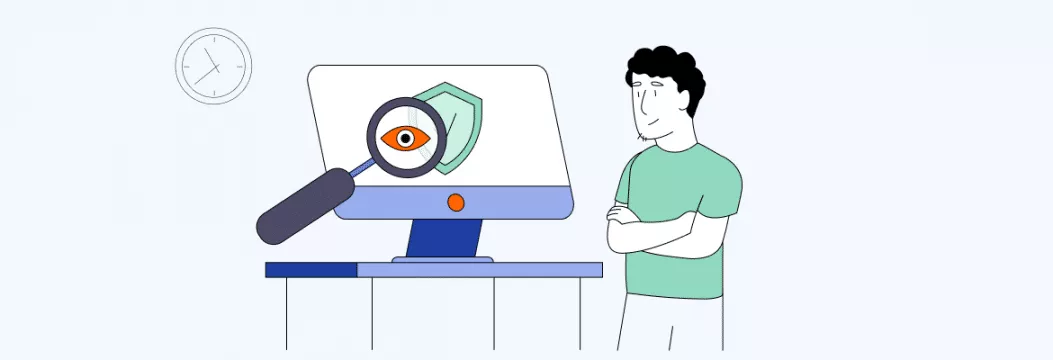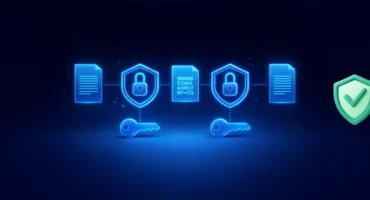Is the CIA Watching Me?

There are more and more talks that governmental agencies are watching the population in many different ways. The CIA’s authority allows it to play a significant role in intelligence gathering and surveillance activities, often under legal frameworks and oversight. Methods of doing it are many, checking your internet activities is one of them. With the global expansion of the internet and the availability of communication devices, it has become quite simple.
There exist automated means to process people’s personal information, including collecting vast amounts of data. It is done to almost 90% of internet users, according to the report of The Freedom of the Net. Documents and leaked documents have revealed the extent of these activities and the methods used. The CIA, in cooperation with NASA, uses special equipment to spy on all forms of communication between people. Supercomputers process this information and identify threatening words or phrases. The CIA’s surveillance programs are designed to conduct large-scale monitoring and data collection as part of their intelligence operations.
But you have to think soberly when you consider this issue. Is it actually possible to watch every citizen in the country? We don’t think so. If you have done nothing to threaten the country’s security, if you do not pronounce “alerting” words like bomb, terrorist attack in your conversations, you are unlikely to be followed by a couple of strong guys from the CIA to see what you do and who you meet. Government claims often state that, for the most part, surveillance programs do not target innocent people, but rather focus on specific threats. But it is not improbable these structures do not store your personal information in a global database. You may relax with complete confidence.
Even if you have done nothing bad, your data may still be collected. You will be completely unaware of it. Intelligence agencies dedicate significant resources to surveillance and data analysis.
Check these 4 signs that indicate you might be watched by the CIA:
- Your webcam is on, but you did not turn it on. Do you think a webcam is a great way to make your communication more exciting? It is true. But you might not know that this is also a great tool for governmental agencies to watch you. They don’t even have to break into your house to do that. They only need to find a way to infect your system with the Gumfish tool, and your cam will take photos and videos of you or record your conversations at their request. The CIA can gain access to your device and use it for spying without your knowledge.
- Yourphone call records. Did you know that it is possible your phone calls are being listened to? Normally, the CIA can not listen to your phone calls without a warrant. But they don’t need it to access your phone records. Analysis of your phone calls, people you talk to, duration of your phone calls can give a clear picture of who you are and your life to governmental agencies. Messages and messages sent or received on your device can also be intercepted, with the FBI and FBI agents sometimes involved in such activities.
- Your gadget was hacked. Who do we blame in the first place when our devices get hacked? That’s right, the hackers. Yet, we forget that this can be the work of the CIA. The difference is that a hacker would do it for a personal reason, and the CIA would do it if they have reasons to consider you a national threat. There is no need to mention that the CIA has all kinds of latest malware to hack devices. They even have a separate unit that specializes in finding methods to spy on devices with different operating systems. Once they get into your phone or computer, they will make it spy for them. The CIA’s programs specifically target devices, and they use spies to conduct surveillance operations.
- There is always a camera close to you. Some of the most-watched areas are America and the UK. They’ve got the biggest number of public cameras. The estimates say that there is 1 public camera for every 10 people in such countries. Surveillance can be conducted on a massive scale, and the point of such monitoring is often justified as protecting public safety or national security.
It is not improbable that your personal information is stored in a global database, often under the authority of an executive order that authorizes such surveillance.
In summary, surveillance and privacy concerns are often discussed in news releases and on platforms like Facebook, highlighting the ongoing debate about government monitoring and personal security.
Introduction to Surveillance
In today’s hyper-connected world, the idea of being watched by government agencies is no longer just the stuff of spy movies—it’s a real concern for millions of Americans. As our lives become more intertwined with technology, intelligence agencies like the Central Intelligence Agency (CIA) have ramped up their efforts to collect and analyze foreign intelligence in the name of national security. The federal government has developed a range of programs designed to retrieve foreign intelligence, but these efforts often spark debates about mass surveillance and the protection of private data.
The CIA, along with other intelligence agencies, is tasked with safeguarding the country from threats by gaining access to critical information. CIA officers use advanced tools and techniques to monitor communications and identify vulnerabilities in devices, all while navigating the legal landscape shaped by the Fourth Amendment, executive orders, and oversight from congress and the senate select committee. This balancing act—protecting national security without overstepping the boundaries of citizens’ freedom and privacy—is a constant challenge for the executive branch and other federal agencies.
Recent news releases and reports have shed light on the massive scale of data collection by intelligence agencies, raising concerns about the potential for abuse and the risk to citizens’ private data. From monitoring suspicious emails to deploying malware that can infiltrate devices, the CIA’s surveillance programs have come under scrutiny for their reach and effectiveness. While these efforts are often justified as necessary for crime detection and protection against hackers, they also highlight the need for clear rules and robust oversight to prevent misuse.
As technology evolves, so do the tools used by both intelligence agencies and those seeking to protect their private data. Encryption has become a vital resource for citizens hoping to keep their communications secure, but it’s also a focus for agencies looking to decrypt and analyze information for national security purposes. This ongoing tug-of-war between privacy and surveillance means that the rules are constantly being rewritten, with congress, the president, and the secretary of defense all playing key roles in shaping policy.
Ultimately, the debate over surveillance is about finding the right balance between protecting the country and respecting the rights of its citizens. The CIA’s mission to collect and analyze foreign intelligence is crucial for national security, but it must be carried out with transparency, accountability, and respect for the law. As the digital landscape continues to shift, it’s more important than ever for citizens to stay informed about how their data is being collected and used—and to understand the role of government agencies in both protecting and potentially monitoring their everyday lives.
Is it possible to hide from being watched by government agencies?
If for some reason, you were put on a watch list, you can’t do much to stop governmental agencies from gathering information about you. Do not think, however, and they are all-powerful. Even if the things described below might seem useless to you, do not neglect them. Doing them little by little, you will put barriers and lessen the chances of being watched.
- Regular update of your gadgets. Set automatic updates of the programs you use in your gadget. You may forget to do it manually, but the automatic update will give you additional protection in the form of advanced bug fixes and other tools for vulnerability.
- Always use a VPN connection. VPN will not only encrypt your conversations but also protect your personal data on the internet and change your IP address.
- Do not open suspicious emails. Everybody knows about it, but still, not everybody avoids opening them. By opening one of such emails, you may let malware into your computer that will not bring you anything good.
- Limit the information you share on your social media. If you are not ready to deactivate your accounts in social media completely, then, at least, mind what you share there. Try not to post any personal information, locations, photos, etc.
- Cover your webcam. Even if your webcam is already hacked, covering it will decrease the amount of information they can get through it.
- Be mindful with your Smart TV. Did you know that smart TVs can help to spy on you too? If you already have one, make sure you always unplug it when you don’t watch it and turn off all voice-related features.
To sum up, we would like to remind you that even if you have done nothing to threaten the security of the country, it does not mean you are not being watched by the CIA. They’ve got many reasons to watch the population. Make sure you use our tips to minimize total surveillance.
VeePN is freedom
Download VeePN Client for All Platforms
Enjoy a smooth VPN experience anywhere, anytime. No matter the device you have — phone or laptop, tablet or router — VeePN’s next-gen data protection and ultra-fast speeds will cover all of them.
Download for PC Download for Mac IOS and Android App
IOS and Android App
Want secure browsing while reading this?
See the difference for yourself - Try VeePN PRO for 3-days for $1, no risk, no pressure.
Start My $1 TrialThen VeePN PRO 1-year plan






